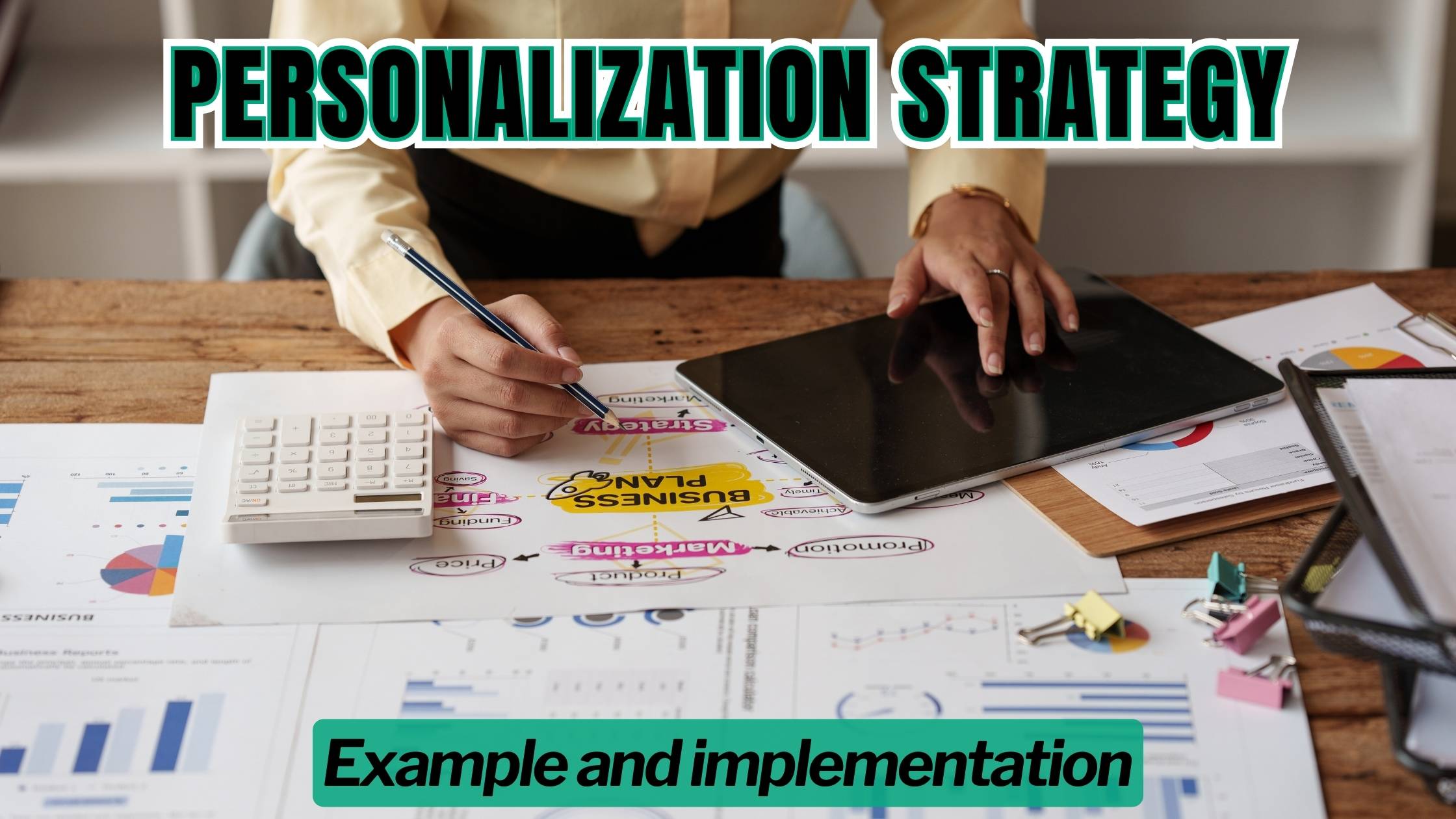Personalization strategy: Example and implementation
- Conversational Marketing Software SEO Software Affiliate Marketing Software Marketing Tools


Personalization Strategy: Example and Implementation
In today’s digital landscape, personalization has become a cornerstone of successful marketing strategies. By tailoring content, recommendations, and experiences to individual preferences and behaviors, businesses can foster deeper connections with their audience and drive engagement and conversion. In this comprehensive guide, we’ll explore the concept of personalization, provide real-world examples of successful personalization strategies, and offer practical insights for implementing personalized experiences across various touchpoints.
Understanding Personalization Strategy
At its core, personalization strategy involves leveraging data and insights to deliver tailored experiences that resonate with individual users. Whether through email marketing, website customization, or product recommendations, personalization enables businesses to meet the unique needs and preferences of their audience, ultimately driving loyalty and revenue.
1. Data Collection and Analysis:
Effective personalization begins with the collection and analysis of customer data. By gathering information such as browsing behavior, purchase history, and demographic details, businesses can gain valuable insights into customer preferences and patterns, laying the foundation for personalized experiences.
2. Segmentation and Targeting:
Once data is collected, businesses can segment their audience based on common characteristics or behaviors. By dividing customers into distinct groups, businesses can tailor their messaging and offerings to address the specific needs and interests of each segment, increasing the relevance and effectiveness of their marketing efforts.
3. Dynamic Content Personalization:
Dynamic content personalization involves dynamically adjusting website content, email campaigns, or advertising based on individual user attributes or actions. For example, an e-commerce website may display product recommendations based on a user’s past purchases or browsing history, enhancing the likelihood of conversion.
4. Omnichannel Personalization:
In today’s omnichannel landscape, personalization extends beyond individual touchpoints to encompass the entire customer journey. By delivering consistent, seamless experiences across channels and devices, businesses can strengthen customer relationships and drive engagement at every interaction point.
5. Continuous Optimization:
Personalization is an iterative process that requires ongoing monitoring and optimization. By analyzing performance metrics, gathering customer feedback, and experimenting with new strategies, businesses can refine their personalization efforts over time, ensuring maximum effectiveness and relevance.
Relevant SaaS Products for Personalization Strategy
In the realm of personalization strategy, several SaaS products offer robust tools and solutions to help businesses implement and optimize personalized experiences for their audience.
1. Optimizely:
Optimizely offers a comprehensive experimentation platform that allows businesses to test and optimize personalized content and experiences across their digital properties. With features like A/B testing and personalization capabilities, Optimizely empowers businesses to deliver impactful, data-driven personalization strategies.
2. Dynamic Yield:
Dynamic Yield provides a unified personalization platform that enables businesses to deliver tailored experiences across web, mobile, email, and more. With its AI-powered capabilities and robust segmentation tools, Dynamic Yield helps businesses optimize every stage of the customer journey for maximum impact.
3. Evergage:
Evergage offers a real-time personalization platform that allows businesses to deliver relevant, individualized experiences to their audience across channels. With features like behavioral tracking and machine learning algorithms, Evergage empowers businesses to create dynamic, personalized interactions that drive engagement and conversion.
4. Segment:
Segment provides a customer data platform that enables businesses to collect, unify, and activate customer data across their entire tech stack. By centralizing customer data and making it actionable, Segment helps businesses power personalized experiences and drive growth through targeted marketing campaigns and engagements.
5. LiftIgniter:
LiftIgniter offers a machine learning-based personalization platform that helps businesses deliver real-time, individualized recommendations and experiences to their audience. With its predictive algorithms and dynamic content optimization capabilities, LiftIgniter enables businesses to maximize engagement and conversion across their digital properties.
Leveraging Subscribed.FYI for Personalization Solutions
Subscribed.FYI serves as a valuable resource for businesses seeking to explore and compare various SaaS tools, including personalization platforms like Optimizely, Dynamic Yield, and Evergage. By leveraging Subscribed.FYI, businesses can access comprehensive information, user reviews, and pricing details to make informed decisions and implement personalized experiences effectively.
In conclusion, personalization strategy is a powerful tool for businesses looking to engage their audience, drive conversions, and build long-term customer relationships. By understanding the principles of personalization, leveraging advanced SaaS tools, and continuously optimizing their strategies, businesses can deliver impactful personalized experiences that resonate with their audience and drive business growth.








